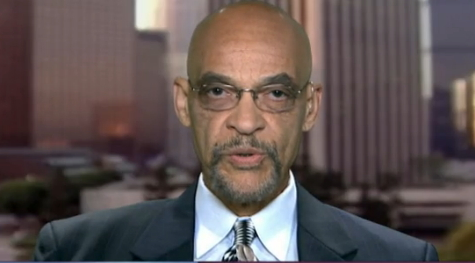Earl Ofari Hutchinson
I didn’t watch this installment of the Democratic presidential debates. It made good theater but not much more. Former President Richard Nixon put his finger on the problem. In a late life reflection in 1987 on what went right and wrong in his long and checkered political career, Nixon had this to say about presidential debates, “In the television age, a candidate’s appearance and style count far more than his ideas and record.”
Nixon more than any other presidential candidate in modern times should know about that. The widely held belief is that Nixon’s fidgety, wooden style, and unkempt appearance in his first 1960 televised debate with a relaxed, tanned, youthful looking John F. Kennedy did him in. Six decades later there was almost a repeat of the style over substance quandary that drags down candidates in these made for soundbite cable news TV spectacles.
That was the moment Democratic presidential contender Kamala Harris blindsided Democratic foe Joe Biden with a personal slap at his stance on busing and by extension race. The stylistic attack in an instant made her the talk of the nation, skyrocketed her from a middle of the pack of contender, and even had some virtually hailing her as the one who could and would vanquish Trump.
The problem with all this is that in the constricted, confined, and cloistered soundbite time span allotted the pack of candidates few could say what her track record of accomplishment was during her stint as California Attorney General and San Francisco DA let alone probe in depth her stance on health care, criminal justice reform ,education, affordable housing, and foreign policy issues. True, Harris and the other top tier Democratic presidential contenders have churned out policy papers that flesh out in some detail their positions on the big-ticket policy items. However, other than some journalists and policy wonks, they are terra incognito to most Americans. The few times that a candidate, say like Elizabeth Warren, try to go further and spell out a policy position, it gets panned as dry and boring or drowned out in the soundbite flash of clash between one or more candidates.
The name of the game then becomes one of parrying, one-unpersonship, and sharp attack. When the dust settles few viewers know any more about what a candidate will do about student debt relief then they did at the start of the debate. Instead, they’ll be deluged with non-stop punditry and commentary about who won or lost the debate, who looked sharp and poised, who got off the best rejoinders and one-liners, and so on. The debate then is not a true debate but a sporting match or better still a jousting match with 100 million spectators serving as cheerleaders for whomever their home team candidate happens to be.
Much of the blame for the theater like atmosphere of the Democratic debates is dumped on the Democrats for having a small army of candidates on the stage. This assures that a bottom tier candidate will say and do anything that they think will get them their 15 seconds of candidacy boosting attention. Harris is certainly an example of that. And yes, there are way too many candidates chasing way too few precious minutes of face time on the stage. However, whether there are two or two dozen candidate on the stage, if the format gives a candidate 60 second general responses and 30 second direct response, what of any real substance could ever be gleaned from that?
The debates are the product of the collaboration between the DNC and the networks. They want a show and a show first and foremost boosts ratings. A lengthy discourse from a candidate on what they will do about global warming if they wind up in the Oval Office would cause too many viewing eyes to glaze over. They wouldn’t be long in front of a TV set if that was the case.
So, it’s entertainment not education. The best that can be hoped for is that maybe at some point this will all translate into more than a few voters wanting to know more about where the candidates do stand on these issues. If so, that’s a plus. Just don’t expect to get that from a pre-programmed can deliveries on a stage graining with other bodies.
Do presidential debates then really influence voters to back a candidate and educate them on the issues? Some studies find that most voters feel they don’t learn much from the debates and are disappointed at that. Even the minority of respondents who say they learn something from the debates insist that they don’t influence their decision on who to vote for. Party affiliation, long-standing political preferences, personal beliefs and values largely determine that.
In the era where politics has become pure theater and entertainment, it’s way too much to ask the Democrats and the networks to pivot and televise debates between the most viable candidates with focused topics. But that’s the only way that voters can know what to expect from the candidates who want to sit in the Oval Office. So, enjoy the show, it’s a show that I missed.
Earl Ofari Hutchinson is an author and political analyst. He is the author of Who Can Beat Trump?: America’s Choice 2020https://www.amazon.com/dp/B07KVM86C6 He is a weekly co-host of the Al Sharpton Show on Radio One. He is the host of the weekly Hutchinson Report on KPFK 90.7 FM Los Angeles and the Pacifica Network.


Now I’ve got to read your book, ” Who Can Beat Trump? “